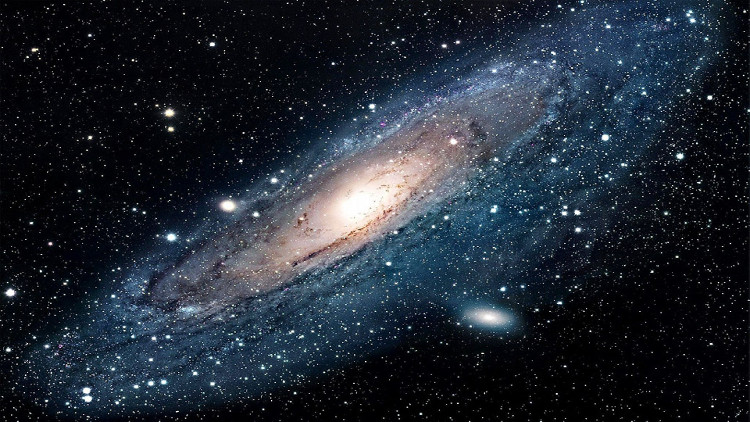The mass of the Milky Way
According to Canadian scientists, the Milky Way has a mass of about 400 to 580 billion solar masses.
The team at McMaster University and Queen's University, Canada, estimated the Milky Way mass , or the Milky Way galaxy , by about 400 to 580 billion solar masses . Meanwhile, the Sun's mass is 330,000 times the mass of Earth, or 2x1030kg, on January 9, UPI reported.

The Milky Way has a mass of 400 to 580 billion solar masses.(Photo: NASA).
When measuring the Milky Way mass, scientists must measure the masses of hundreds of billions of stars, planets, moons, gases and dust. It is easier to estimate the amount of tangible matter. The most difficult part is to estimate the amount of dark matter, which astronomers cannot see, can not be detected directly in the laboratory or in space.
The mass of dark matter is calculated by the gravitational influence of the Milky Way on the position and motion of globular clusters around it. To determine the motion of globular clusters, astronomers must map their paths in the sky.
The team built a new statistical model to explain the instability in the moving value of globular clusters. This model uses the Bayesian statistical method to consider the position and velocity of the globular cluster as parameters, not a fixed value.
"When I have access to large amounts of data, I think it is important that we carefully consider the statistical method used to analyze the data, especially in the field of astronomy, where The data may be incomplete and uncertain, " said Gwendolyn Eadie, astrophysicist at McMaster University.
- Fun little-known facts about the Milky Way
- Enjoy the pure Milky Way season
- The Milky Way has a mass of 700 billion times the Sun.
- The Milky Way is lighter than previously thought
- The Milky Way has billions of planets close to Earth
- Detecting the minimum mass of the galaxy
- The Milky Way had 'devoured' another galaxy billions of years ago
- The mysterious age of the mysterious star
- The Milky Way might contain 100 million black holes
- The Milky Way has died once, we live in its second
- Decode the black hole secret in the Milky Way 2 million years ago
- The Milky Way has no numerical date
 Van Allen's belt and evidence that the Apollo 11 mission to the Moon was myth
Van Allen's belt and evidence that the Apollo 11 mission to the Moon was myth The levels of civilization in the universe (Kardashev scale)
The levels of civilization in the universe (Kardashev scale) Today Mars, the sun and the Earth are aligned
Today Mars, the sun and the Earth are aligned The Amazon owner announced a secret plan to build a space base for thousands of people
The Amazon owner announced a secret plan to build a space base for thousands of people